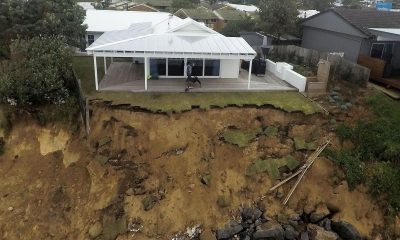Science
Animals lose fear of predators rapidly after they start encountering humans – Phys.org
Most wild animals show a suite of predator avoidance behaviors such as vigilance, freezing, and fleeing. But these are quickly reduced after the animals come into contact with humans through captivity, domestication, or urbanization, according to a study led …

Most wild animals show a suite of predator avoidance behaviors such as vigilance, freezing, and fleeing. But these are quickly reduced after the animals come into contact with humans through captivity, domestication, or urbanization, according to a study led by Benjamin Geffroy from MARBEC (Institute of Marine Biodiversity, Exploitation and Conservation), publishing September 22nd in the open-access journal PLOS Biology.
The international team of researchers analyzed the results of 173 peer-rev…
-

 Noosa News23 hours ago
Noosa News23 hours agoIndooroopilly, Carindale, Nundah to get taller buildings, more homes under development plan
-

 General18 hours ago
General18 hours agoCleaner fuel pledge amid ‘unliveable’ climate warning
-

 Business18 hours ago
Business18 hours ago1 thing Elon Musk said about self-driving cars every Tesla investor should hear
-

 Noosa News18 hours ago
Noosa News18 hours agoSTARS alive on stage | Noosa Today

